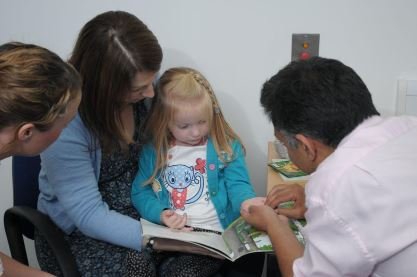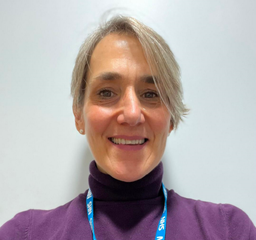Where are genetics clinics located?
Regular clinics are held in hospitals all around East Anglia.
Although we are not found on the ‘choose and book’ system for appointments we will try to offer you an appointment at your nearest hospital if possible, or alternatively you can be seen in Cambridge. If you are asked to attend a specialist clinic you may need to come to Addenbrooke’s to see that specialist team. The NHS Constitution sets out that patients should wait no longer than 18 weeks from GP referral to treatment.
Some Genetics appointments are also arranged via telephone or video (Attend Anywhere). This will be specified on your appointment letter.
Who will I see at my genetics clinic appointment?
You will be seen by a member of the clinical genetics team. This may be a doctor who specialises in genetics or a genetic counsellor.
How long is the appointment?
Most genetic appointments are 45 to 60 minutes long, so you should not feel rushed. Several relatives may attend the appointment together if they wish. Follow up appointments may be organised at one of our specialist clinics. This may take longer as you may be seen by several medical specialists with expertise in different aspects of the genetic problem in your family.
What will happen at my appointment?
The details of your appointment will vary depending on the reason for your referral but will often include:
- Assessment of the problem that has brought you to the clinic which will be discussed in detail. The doctor or counsellor will ascertain what questions you may have and what you would like to get from your visit.
- A family tree will be drawn which may include medical details of relatives, such as cause and age of their diagnoses or death. It is useful to have found out these details before you come to the clinic or bring a relative that may know.
- A medical examination may be carried out on relevant members of the family.
- The doctor or counsellor will explain the genetic issues to you and discuss all available options.
- You will be encouraged to ask questions and to make your own decisions about what to do with your genetic information. The doctor or counsellor can help you with this, but will not make decisions for you.
In some situations, tests (such as blood tests) may be offered. Sometimes you will be able to provide a sample on the day. At other times you will be asked to take some time to come to a decision about whether to proceed with a test and offered the opportunity to come back at a later date.
At the end of the appointment a plan will be made. This may include information gathering, special tests and / or another appointment.
Will any tests be done at my appointment?
We may suggest a blood sample but it is highly unlikely that we would suggest any other test at your first appointment. If other tests would be helpful, we will discuss these with you and then make arrangements for these to take place later if you would like to go ahead. Genetic testing on a blood sample is only indicated in some families so some people will not be offered a blood test.
What will happen after my appointment in the genetics clinic?
We will write to the referring doctor (your specialist or GP) with a summary of the consultation and the advice given and any plans which have been made (e.g. for further investigation or follow up). You will usually be sent a letter summarising what was discussed at the appointment and what plans were made. If anything in this is unclear, you should contact your clinical geneticist or genetic counsellor again.








